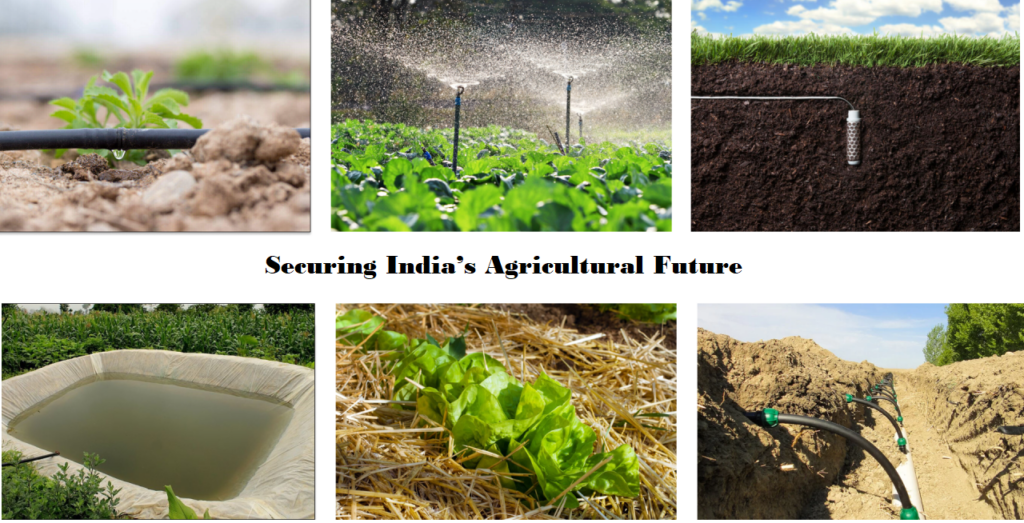
India, with its vast agricultural landscape, faces significant challenges in ensuring sustainable water availability for farming. The country relies heavily on monsoons for irrigation, making water storage a crucial solution to mitigate seasonal variability and droughts. By developing efficient water storage systems, India can enhance agricultural productivity, ensure food security, and support rural livelihoods.
The Importance of Water Storage in Agriculture
Water storage plays a pivotal role in stabilizing water supply for agriculture, especially in regions where rainfall is inconsistent. Farmers often struggle with prolonged dry spells, which hamper crop yields. By storing excess rainwater during monsoon seasons, farmers can maintain irrigation even in dry periods, reducing their dependency on erratic weather patterns.
Types of Water Storage Solutions:
India can adopt various water storage methods to support its agricultural sector, including:
1. Reservoirs and Dams
Large reservoirs and dams help store monsoon water, ensuring consistent irrigation. These structures also assist in groundwater recharge and support hydroelectric power generation. Investing in modern reservoir management can optimize water distribution across farming communities.
2. Farm Ponds and Check Dams
Small-scale water storage solutions like farm ponds and check dams provide localized water supply for farmers. These systems are cost-effective and easy to implement, allowing farmers to capture excess rainfall and use it during dry periods.
3. Rainwater Harvesting
Rainwater harvesting techniques, such as rooftop collection and surface runoff storage, help in replenishing groundwater levels and providing sustainable irrigation solutions. Government initiatives promoting rainwater harvesting can encourage widespread adoption among farmers.
4. Groundwater Recharge
Recharging groundwater through artificial methods, such as percolation tanks and borewell recharge systems, ensures sustainable underground water availability. This technique is essential in regions experiencing rapid groundwater depletion due to excessive irrigation.
Benefits of Water Storage in Agriculture
Improved Crop Yield: Reliable water supply leads to higher agricultural productivity and improved food security.
Drought Resilience: Stored water provides a buffer during dry spells, reducing crop loss.
Economic Growth: Enhanced irrigation facilities boost farmers’ income and overall rural development.
Environmental Sustainability: Efficient water management conserves natural resources and maintains ecological balance.
Conclusion
Water storage is a vital component in addressing India’s agricultural water needs. By implementing effective storage solutions, the country can mitigate water scarcity, stabilize agricultural output, and support millions of farmers. A collective effort from policymakers, agricultural experts, and local communities will be essential in optimizing water resource management and ensuring a prosperous future for India’s agriculture.


